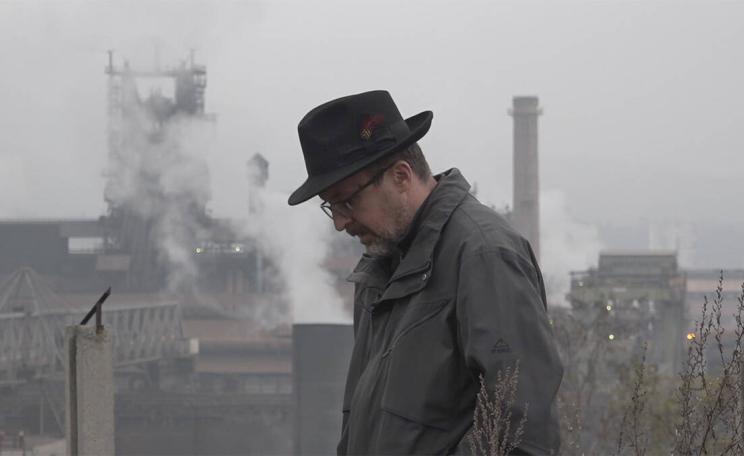The immense demand for raw materials like copper and cobalt and nickel coming online in the next few decades implies some people stand to become very wealthy indeed.
Mining giant Anglo-American, owners, amongst much else, of De Beers, the world’s largest diamond producers, has rebuffed another multibillion pound takeover bid from global miner BHP.
BHP’s improved offer came weeks after a £34bn takeover attempt was swatted away by Anglo-American, whose board is now seeking to convince shareholders to keep the company independent.
This article is based on a transcript of an episode of James Meadway's podcast, Macrodose.
But behind the business jostling are the powerful, fundamental forces now reshaping the global economy: the drive of capitalist firms to agglomerate into bigger, more powerful units; and the immense shift in global energy consumption as fossil fuels are phased down whilst energy use continues to grow.
Technologies
Anglo American has had to write down billions in impairment over the last few years, related to losses in its diamond arm and from selling platinum and rhodium. The latter two minerals are used for catalytic converters for internal combustion engine cars (ICEs). Electric vehicle (EV) demand is rising and so demand for both platinum and rhodium has fallen off, depressing global prices.
Anglo American announced 3,700 job losses in its South African platinum mines just a couple of months ago. So BHP has sensed a weakness and, in the usual way capitalism is supposed to function, is taking the opportunity to expand.
But those losses at Anglo American also point to a more interesting, longer term shift. Soaring future demand for electricity, combined with the need to overhaul existing energy systems, is already starting to drive up demand for the critical raw materials needed.
Decarbonisation, reducing greenhouse gases, on current technologies implies a great deal more electricity use. This happens when you ditch a petrol-powered car and use an EV, for instance.
Consumption
But also the data centres that power the modern internet are incredibly energy intensive – a single, modern datacentre typically uses about as much electricity as 80,000 households. Microsoft, for example, is currently opening one of these things somewhere across the globe every three days.
And electrical systems built generations ago in the older, developed economies for a world of centralised fossil fuel electricity production will need overhauling to cope with decentralised, intermittent renewable power.
Meanwhile, climate change itself is likely to drive intense new demands for power. If management consultants McKinsey are right, and half the population of India is running an aircon unit by 2050, that’s an extraordinarily large new demand for capacity.
Put all that together and what you need is not so much the continual consumption of fossil fuels, as a few decades of frantically installing wires and batteries and transformers and so on. That’s an immense demand for raw materials like copper and cobalt and nickel coming online in the next few decades.
The immense demand for raw materials like copper and cobalt and nickel coming online in the next few decades implies some people stand to become very wealthy indeed.
Scale
And that, in turn, implies that those able to mine those minerals stand to become very wealthy indeed. The price of copper has soared in the last year to $10,000 a tonne, but demand has also continued to rise globally – notably in China, where imports of the material reached an all-time high in the last month or so.
Hence the sudden round of mergers in the mining industry. Total mergers and buyouts worldwide rose 75 per cent to $121bn globally.
Mining, perhaps above all else, depends on huge, long-term capital investment – think of the sheer size and complexity of the equipment needed to operate a modern open-cast mine, or to run a lithium processing facility.
These are some of the biggest and most complex industrial operations in existence – the economies of scale, in other words the cost-savings that can be made from increasing the size of the operation, are typically substantial.
Crisis-ridden
So the financing needed for those investments is equally enormous and that, in turn, promotes consolidation amongst mining companies, which are today some of the largest in the world.
BHP no doubt doesn’t care too much about Anglo American’s loss-making platinum mines. The latter company has highly lucrative copper mines in Chile and Peru, two countries on the frontier of growing global competition for scarce mineral resources.
The changing environment is reshaping the economy in front of us, perhaps most obviously in the form of rising prices.
But it’s also reshaping the institutions of capitalism – the “concentration and centralisation of capital”, as Karl Marx called it - is being pushed further and further, as larger corporations swallow the smaller and attempt to seize the exceptional profits of a crisis-ridden world.
This Author
Dr James Meadway is an economist and former political advisor. This article is based on a transcript of an episode of Meadway's podcast, Macrodose.






